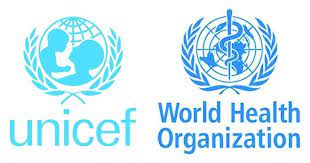By Haruna Gimba
When high quality health information is not available and questions and concerns go unaddressed, low quality health information or misinformation can quickly spread across communities and impact people’s health decisions.
In response to the need to understand the health information environment and help health workers better communicate and engage with the public to encourage healthy behaviours, World Health Organisation (WHO) and the United Nations Children’s Fund (UNICEF), in collaboration with their networks and partners, have published a ground-breaking manual and accompanying tools for analysts who conduct social listening to develop infodemic insights.
What makes this manual unique is that it emphasizes an evidence-based and reproducible process performing integrated analysis across online and offline datasets to produce infodemic insights and recommendations for action to improve public health.
“Infodemic insights are critical in understanding the information environment driving narratives during an emergency,” remarked Dr Sylvie Briand, Director, Epidemic and Pandemic Preparedness and Prevention at WHO.
“When people are confused or overwhelmed with information, it can be difficult to know where to turn to for credible health information and infodemic insights can provide evidence-based recommendations on how to address such challenges, and do it quickly when time is of the essence.”
An infodemic is defined as an overabundance of information, accurate or not, in the digital and physical space accompanying an acute health event such as an outbreak or epidemic. Infodemic insights are developed through compilation of narratives (description of series of events) that are generated across various data sources, which are often captured through social listening.
These insights are presented as reports which describe narratives, their level of risk, and identify accompanying recommended actions in emergency preparedness and prevention or response.
Such insights reports have been used to inform immunization campaigns such as for polio, measles-rubella and restoring routine immunization, outbreak responses for COVID-19, Ebola, mpox and Marburg, and other emergencies.
They provide important context for deploying more effective social behavior change, communication and community engagement strategies by filling information voids, addressing misinformation, helping people better discern credible sources from non-credible sources, and promoting trust in health workers and in health guidance.
The infodemic insights manual provides a flexible approach based on available data sources. Dr Ephrem T. Lemango, Associate Director of Immunization from UNICEF observed that, “We know not everyone is online, which is why it is helpful to have an insights manual that helps us create a process to understand conversations, narratives and misinformation across both online and offline health system and community social data sources.
“The closer we get to community level and identify vaccine questions and concerns, the more tailored our vaccine demand and social behavior change strategies will be to ensure everyone everywhere is protected from vaccine-preventable diseases.”
The infodemic insights manual provides guidance for each of the six steps to building an insights report, which include:
1. Choosing the question that infodemic management insights could help to answer
2. Identifying and selecting the data sources and develop an analysis plan for each data source
3. Conducting an integrated analysis across these data sources
4. Developing strategies and recommendations
5. Developing an infodemic insights report
6. Disseminating the infodemic insights report and tracking the actions taken
This manual is designed to be used by people in infodemic management functions within UN agencies, national level public health institutes, local health departments, factchecking organizations and community-based organizations.
The manual will be beneficial to individuals with experience in digital analytics, digital health, communications, behavioural science, health information analysis, health promotion, emergency response and related areas in the context of public health.
Numerous examples, templates and resources are provided in the manual to aid in the infodemic insights development process, which can be applied to a large range
of health and development-related topics.
Specific topic-based annexes offer additional expert-provided guidance for covering polio and zero dose, vaccine safety, seasonal influenza and mass gathering events.
The infodemic insights manual will be launched at a special global webinar by Dr Sylvie Briand (WHO) and Dr Ephrem T. Lemango (UNICEF) on 13 July, 2023 followed by two insights manual advanced topics webinars (two different times to cover diverse time zones) on 20 July 2023 for SBC officers, RCCE staff, health promotion officers, infodemic managers and others in the WHO and UNICEF networks and beyond.




